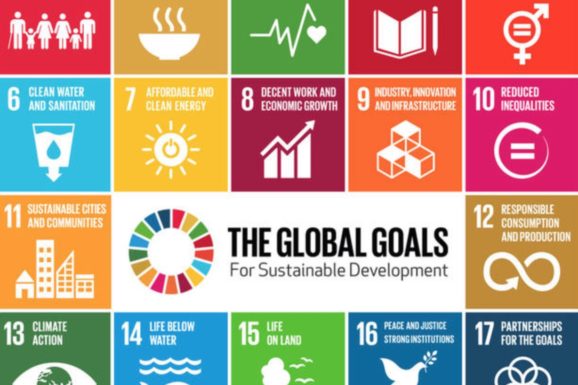Complex global problems require complex solutions – and it’s rare that such solutions are achieved today without significant collaboration across issues and sectors. As the United Nations General Assembly (UNGA) convenes and fuels Global Goals Week, corporate, nonprofit, academic, political, and cause leaders of all stripes are descending on New York City in search of solutions to the challenges they face, and they are looking to forge the partnerships that can make them a reality.
In fact, last year’s Global Goals week was one of the strongest examples of partnerships at work – it was there that 31 countries agreed to join the Paris Climate Accord on the same day, delivering the momentum that would lead to its global adoption.

But Global Goals Week isn’t just a place for government leaders to develop partnerships. It’s also an important time for corporate leaders to build relationships with public, multilateral, and cause organizations that can complement their own core competencies in addressing complex crises. As increasingly global businesses are impacted by increasingly global challenges, business leaders have begun to realize the importance of proactively engaging stakeholders and partners. No longer satisfied with the waste and lack of precision that comes from responding to a crisis after the fact, corporate leaders are beginning to rely on partnerships and knowledge networks to confront challenges and capture opportunities before a crisis emerges.
There are a few prominent examples of the success this strategy brings. Coca-Cola partnered with Africa United on a public education campaign to prevent the spread of Ebola in 2014, using its local bottling partner’s capacity to print and distribute public health awareness materials to NGO partners. Had it not done so, the potential impact of the disease on its workforce and consumers could have posed a serious threat to the surrounding community – and in turn, its business. UPS has partnered with the vaccine alliance and a robotics company to allow it to deliver vaccines by drones during an epidemic, making its operational capacity a cornerstone of any early response. These partnerships deliver real value – they reduce risk and economic disruption while enhancing relief coordination and preventing waste.
Earlier this year, the UN Global Compact showcased a different type of partnership with the launch of its Gender Gap Analysis Tool. This online platform was built with help from over 170 companies around the world, and relies on the participation of the 9,000 companies that belong to the UN Global Compact to assess where opportunities lie to improve gender equality. Corporate leaders are no longer just valuable financers for aid, but are instead essential partners in understanding the scope and intricacy of the issues themselves.
In a suitable indication of what the future of solving global challenges looks like, this year will be the first where the Bloomberg Global Business Forum takes the reins from its forebear, the Clinton Global Initiative. This invite-only forum will bring together over 100 CEOs and 30 senior government officials. What better indication of what new global governance looks like than Michael Bloomberg himself, a successful entrepreneur, mayor, and partner to the UN, encompassing the type of multifaceted partnerships that will be needed to solve global challenges.
In a world of increasing specialization — as well as multi-dimensional challenges — partnerships are essential to seizing opportunity, shaping the landscape around us, and increasing the influence brought to bear on the challenges confronted. During much of the rest of the year, the United Nations will orbit around a predictable political cycle and reactionary responses to crises, but for this next week there is a real opportunity for the private, public, and cause sectors to engage with each other and form alliances that together can move the needle on the pressing issues of our time. At handshake, we view strategically selecting and investing in partnerships as critical to their long-term success. Partnerships entered into with forethought, active management, and a framework for success allow them to become self-aware rather than to idle on autopilot, to thrive rather than become consumed by their own limitations. While handshake is active at many of the globe’s major forums as part of the dynamism of forging relationships and unlocking potential ones, we have a special commitment for the UN’s Global Goals Week, where the greatest diversity of nations and sectors converge on an already thriving monument to mutual cooperation and partnership.
Corporate leaders with an eye toward the future should not sit this opportunity out to engage with other like-minded public and private leaders. The divide between responsible corporate governance and responsible global civics, if there ever was one, is closing quickly.

